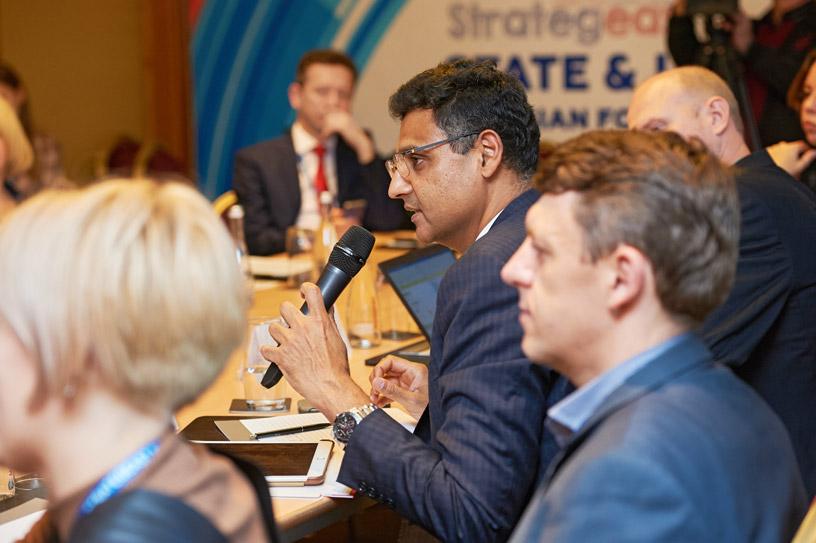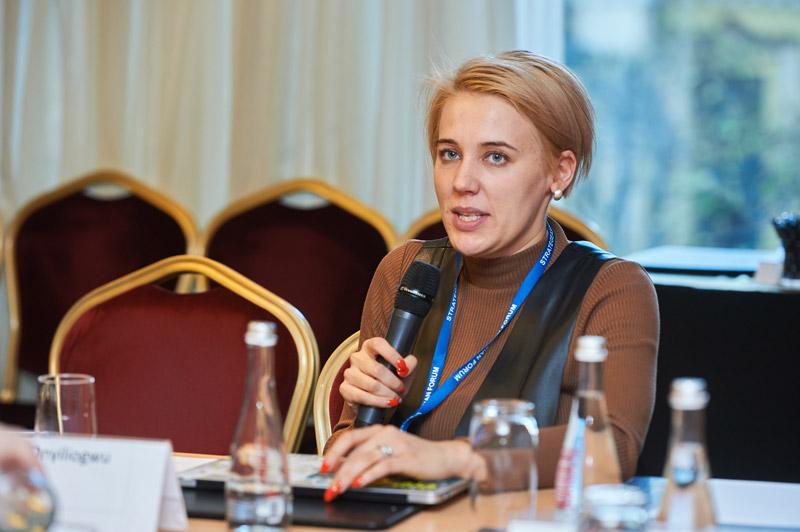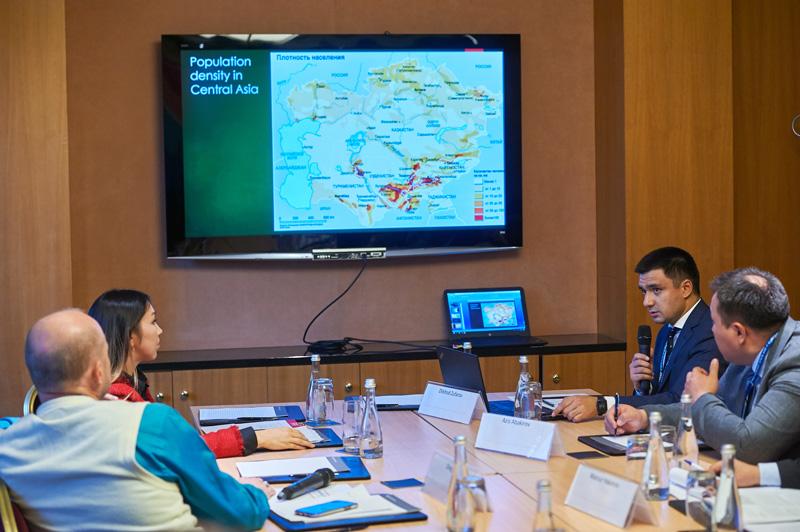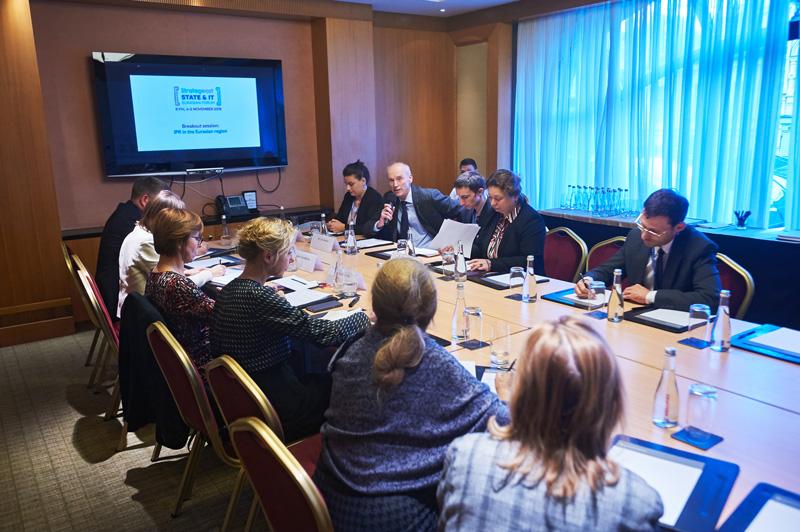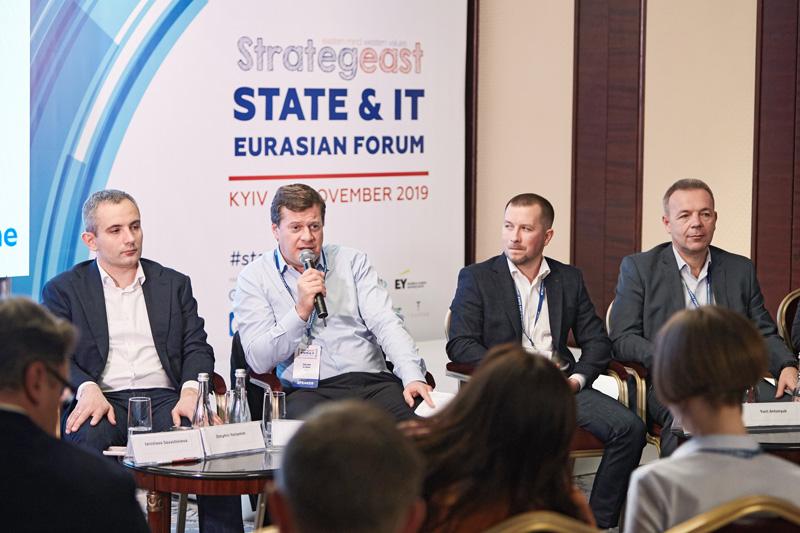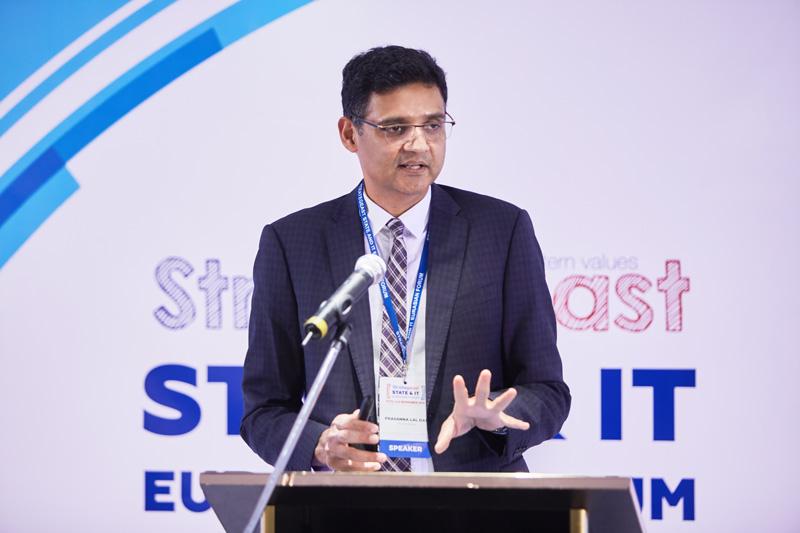![]() Presentation by Irina Andryushchenko, D2
Presentation by Irina Andryushchenko, D2
Download
The material is prepared based on speeches at the panel session ‘Data driven economy empowers Eurasia’. The speakers on the panel: Artem Afian, Co-founder, PatentBot; Managing Partner, Juscutum Attorneys Association; Irina Andryushchenko, COO and co-founder, D2. Lead of Industry Bot project team; Prasanna Lal Das, Lead Digital Strategist, World Bank (moderator); Kateryna Onyiliogwu, Open Data Team Lead, USAID/UKaid ‘Transparency and Accountability in Public Administration and Services’ project; Oleg Petrov, Senior Program Officer, Digital Development, World Bank; Farid Safarov, Director General, Directorate for Digital Infrastructure on Transport at Ministry of Infrastructure of Ukraine.
Digital economy lies on the foundation of the data. The foremost challenge in building the new digital economy is the data poverty. The way to the successful digital economy is laid on the groundwork of proper access to, collection of and managing data resources. Most policies start there – how do we actually get the data in one place and how do we form principles of action.
Today the world is drowning in data. Right now, there are more data assets in the world than ever before. Statistically, the amount of resources is growing exponentially – 90% of the world’s data was produced during the last 2 years. The nature and the source of this data has changed fundamentally. Historically much of what we did was not datafied. Now everything we do is datafied – street cameras are capturing information about people, the cell phone is constantly generating huge amounts of data, various sensor devices have become sources of new data. Some 10 years ago, we had 300 data interactions per day; today the number has reached 5,000, which is rather dramatic. In addition, another trend is emerging – using real-time information, 30% of the data right now is real-time. In the old days information used to be captured at a particular point in time, often it reached the user 6-12 months later. Nowadays, the information is captured and used in real time constantly, and that is happening largely due to generating machine data, which is set to become the dominant type of data over information from human beings.
We do not actually see the data as physical form, but people build services using new technologies like artificial intelligence or blockchain or various types of applications. Through those, we experience additional world based on the foundations of data, which gives significant positive implications for individuals, businesses and for governments. Today, 7 out of 10 most valuable companies in terms of market capitalization in the private sector are data driven. The other three are becoming quite data-driven as well.
Governments and private sector have not really learned to work very well together when it comes to data driven services and policies. Quite often, even though they recognize the importance of the issue separately, they do not have the mechanisms in place to work effectively together.
Businesses of Eurasian countries admit that they are at the beginning of digitalization era and realize – if you are not data driven today, you can lose the game because your competitors will be data driven. Those who make good use of data, are highly competitive, able to generate specific outcomes, and are constantly growing their export potential. However, often private sector experiences data shortages. In fact, there is large amount of data, but the businesses have problems with access to it, as it is dispersed among multiple institutions. One of the main challenges is the absence of a single source of reliable data to operate with. Businesses start launching projects that help tackle this problem. The governments too start taking steps towards gathering information in one source, launching various initiatives. Thus, in Ukraine the ministry of infrastructure made the procurement processes transparent, publishing all the contracts, legal documents in the public domain eliminating corruption risks.
In fact, both the public and the private sector representatives agree that there should be more interaction between them, which should be supported by elaboration of respective policies and adopting appropriate legislation. The countries need to build an open data ecosystem as the businesses have a particular demand for that and government can respond given they have capacity. A fertile ecosystem needs to be created for the private sector to collect data more effectively and efficiently, to actually encourage them to create the foundation for data economy that goes beyond national boundaries.
At the same time, the governments are not willing to open large amounts of data due to security reasons, due to longer time required for policies elaboration and implementation. Secondly, creating APIs, which could allow different entities to retrieve the data in machine-readable format, require additional resources, which the governments lack. However, private sector can help find a sustainable model where government is interested in providing, and has the capacity to provide high quality data. The businesses are ready to invest funds and provide the technology to governments, to invest their time and efforts and later to get it back by offering some extra services for clients.
Moreover, dealing with the information based issues, data ownership is becoming an issue – data evaluation, data markets, data exchanges, and intellectual property rights appear as challenges to be tackled.
Eurasian countries could use best practices introduced by international institutions. World Bank uses the following data policy frameworks:
- Data as infrastructure – policies that help collect, manage, share access, disseminate the right data effectively, and this is government data going beyond essentially creating a data infrastructure environment for the country.
- Trust pillar, which helps create products and services that consumers actually want to use and they trust the fact that the data will be protected. These policies include intellectual property issues.
- Value pillar – policies that actually perish the growth of the private sector or anybody else who wants to create value from data, so policy is designed to encourage entrepreneurship, innovation, or policies like open data to actually encourage reuse of data assets in the country.
There is a lot of work done in open data, but it is one piece of the data-driven economy, of the digital economy. Digital is a key enabler of development and key factor for leapfrogging in development and transformation for the Eurasian countries.
The open data ecosystem is actually a part of the broader data ecosystem. The letter includes registries, not necessarily open data, but it is extremely valuable economic asset, strategic asset for the economy. Some of this can be open, some of this cannot be open, but it has to be shared, has to be digitally open, at least partially. Eurasian countries should be thinking about broader policy issues from a policy framework for data economy.



